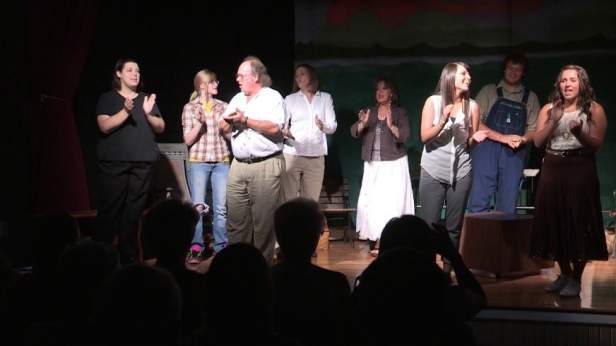Guest post by Elaine Weiss, former National Coordinator of the Broader, Bolder Approach to Education
For those who do not live in the region, the term “Appalachia” conjures up images of hollowed-out towns, ramshackle houses, and long country roads that don’t lead to much. Recently, the region has also become painfully synonymous with overdoses of opioid painkillers, pills prescribed at outrageous, and lethal, rates, across West Virginia, Kentucky, and beyond.
While homing in on some raw realities, these depictions of dire poverty in all-white communities are part of an old narrative, one stemming from the 1960s and the War on Poverty. This narrative does not begin to paint a full picture of the region.
In Eastern Kentucky, a key objective of Partners for Education (PfE), a non-profit organization housed at Berea College, is to educate the children growing up there about their rich cultural heritage. Instilling in them a sense of their history is, PfE believes, foundational to its goal of raising children who are prepared for post-high school education and training – at Berea or at other post-secondary institutions – and to grow into productive, thriving adults.
Over the past decade, with the support of a series of federal Promise Neighborhood grants, PfE’s early childhood and parent engagement specialists, regional physical and mental health providers, and the local partners who collaborate with them have set in place the strategies to achieve those goals.
The first challenge PfE faced in some remote areas was the schools’ inability to get at-risk young children into the preschool programs that are critical to ensuring school readiness. Long distances, lack of space in school programs, and parents’ skepticism about pre-k posed serious barriers. PfE got creative; it leveraged a foundation grant to retrofit two school buses into mini-preschool classrooms, complete with a play area, a mini “library,” and even a selfie-friendly corner where kids took holiday photos that the PfE specialists staffing the bus turned into adorable Christmas gifts for parents. The brightly colored paintings by local Appalachian artists that are wrapped around the buses made them even more appealing. At every weekly session, after playing and reading with their children and the specialists, parent got one-on-one support with parenting and job skills so they could be more confident partners in their children’s education.
Artist residencies in local schools, another innovative approach that engages children both academically and culturally, has also turned out to be a powerful parent engagement tool. Berea College, which was established in 1855 by “radical abolitionists,” continues over 150 years later to emphasize the value of manual work and local artistry. It connects schools to local basket-weavers, who lead workshops that bring the elementary classroom to life for students stressed out by math tests and trauma at home. Middle and high schools host muralists, who work with students to design paintings for their walls that reflect their histories and aspirations. School Community Art Nights, where students showcase their masterpieces, bring in parents who previously saw the schools as intimidating and uninviting places.
A powerful support was the production by Owsley County high school students’, their English teacher, and local artist Judy Sizemore, of Homesong, a musical revue giving voice to the community. It features students as young as kindergarten along with teens, parents, grandparents, and even great-grandparents telling stories about their communities — in their own words. These stories can also help surface the ethnically diverse culture of the region, including long-standing Native American and African American communities that are too often overlooked. One Berea College student who was in the first class to produce Homesong recalls the powerful affirmation she felt when, rather than seeing no one show up for their first production, they were sold out and had to stage additional shows to meet local demand. These unique wraparound supports have a potent and long-lasting impact on children’s development. Beyond test scores that are rising in PfE-served counties, newfound confidence has surfaced among children for whom art has been the key to unlocking their academic potential, and parent empowerment is evident in mothers and fathers who have overcome their own sense of discomfort with school and district leaders to advocate for better instruction for their children.
Increased numbers of high school students in the communities served by PfE will arrive at Berea or at other post-high school learning environments ready to take the next steps on the path to becoming the future of Appalachia – its basket-makers, playwrights, artists and teachers, etc. – who can help to inspire the next generation while simultaneously contributing to the prosperity of their community and the region. Our nation needs to move these and other comprehensive student supports, uniquely tailored to communities’ needs and assets, from the margins to the mainstream.
Guest-blogger Elaine Weiss is the co-author of the new book, Broader, Bolder, Better, written with former Massachusetts Secretary of Education Paul Reville.
